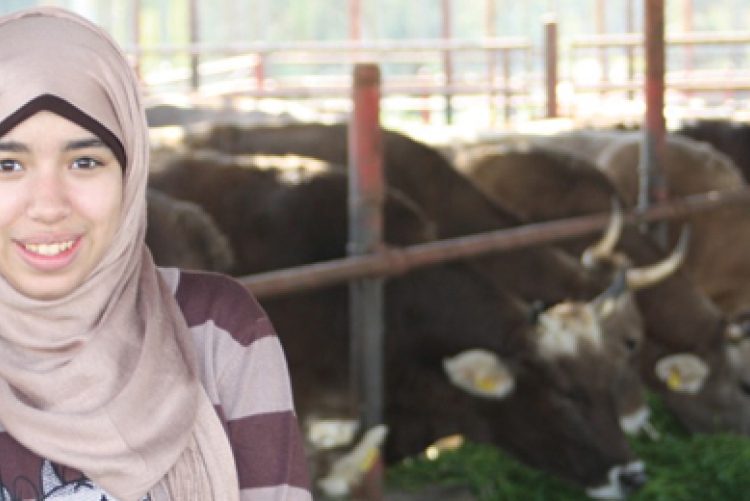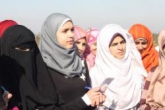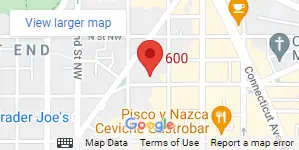Since summer 2011, the Women’s Individual and Social Empowerment (WISE) Program has been helping 75 young women from some of these neighborhoods improve their chances of breaking out of the cycle of poverty. Implemented with funding from the U.S. Department of State, the program emphasizes English language, life skills, and leadership training and awareness-raising through activities focused on topics such as personal safety, community engagement, and economic empowerment. It also teaches strategies for navigating the many challenges that lie ahead for these young women due to their gender and socioeconomic circumstances.
“Amideast developed the WISE Program out of a desire to expand access to its educational and training services to benefit less advantaged women living within walking distance of our classrooms. Our considerable experience with similar projects that target youth from underserved backgrounds gave us the confidence that we could construct and implement a program that would target their educational and social needs,” noted James Ketterer, Amideast’s country director for Egypt.
Competition to get into the program was intense. Many applicants were attracted by the opportunity to develop the strong English language skills that would improve their academic and career prospects, yet are typically difficult to achieve in Egypt’s public schools. Indeed, although most had studied English for years, the vast majority could not answer simple questions in English.
The WISE Program has succeeded in many ways. Today, these young women are confident users of English. Just as important, they now feel empowered, in their words, to be “strong” and “self-confident,” to “realize my rights and how to protect myself,” to “get a job,” and to “make better decisions.” They know that they can help shape the future.
― Appeared in Amideast Impact Newsletter, Winter 2013



